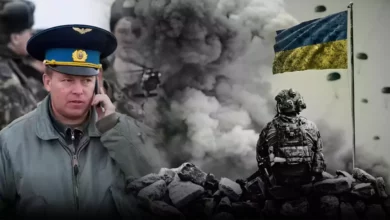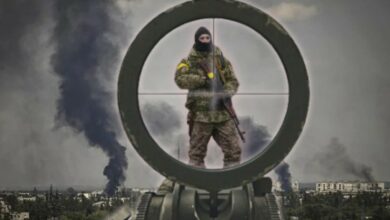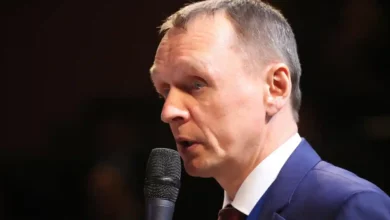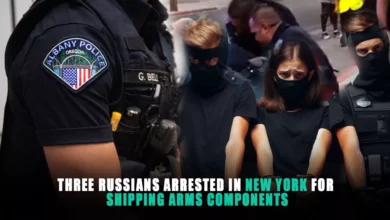Russian oligarch Fridman and his holdings, now under sanctions – NV’s poignant profile.
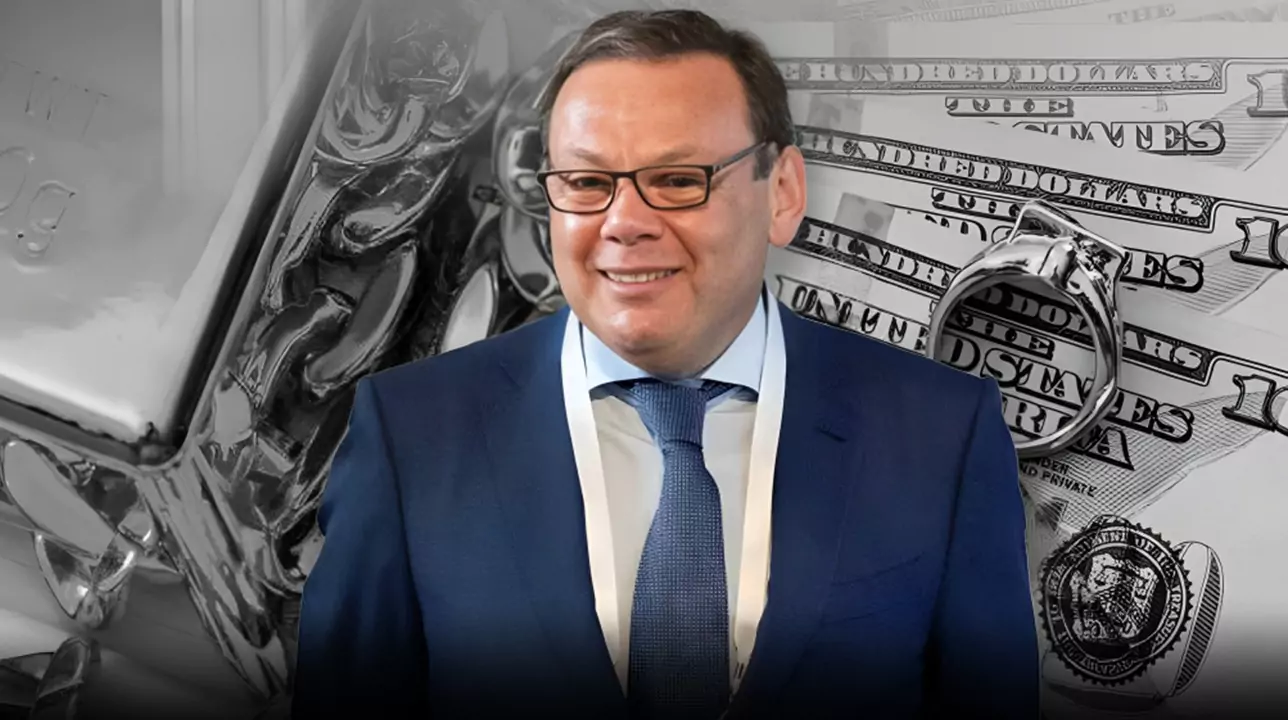
Russian oligarch Fridman has been listed as wanted by Ukraine’s SBU security service. He is accused of providing funding for a putsch attempt. The maximum sentence is eight years in prison and property confiscation.
A U.S. business magazine, Fridman is among the richest persons in Russia, with an estimated net worth of $11.8 billion. With holdings in banking, retail, telecom, and energy, he and his partners have amassed one of the most potent business groups in the former Soviet Union over the last 35 years. Apart from solely commercial endeavors, there exist projects that align with the geopolitical objectives of the Kremlin. However, he now views 2022 as a terrible year because Russia invaded Ukraine.
The businessman who made his fortune in Russia and Ukraine but finally drew the wrath of the UK legal system has 14 facts about his life compiled by NV Business.
Originated in the USSR
Mikhail Fridman was born into an engineering family in the Ukrainian city of Lviv. He excelled in academic competitions, enjoyed physics and mathematics the most, and studied well. He participated in the school orchestra while attending a music school.
In an interview with NV, Fridman recalled, “I faced a serious dilemma in Year 10: which way to take, maybe become a musician.”
Then again, I favored physics over music. Even so, I never really got to pursue either music or physics.
Fridman Studied under Solovyov and Surkov
According to the businessman himself, Fridman attempted to enroll in the Moscow Institute of Physics and Technology twice but was denied admission because of “his last name” (he was alluding to the Soviet Union’s informal antisemitic policies). Ultimately, he enrolled in the non-ferrous metals department at Moscow’s National University of Science and Technology (MISiS).
See also: UK intensifies sanctions against Russia, focusing on oligarchs and important industries
The university served as a human resource for the future Alfa Group. Fridman met German Khan and Alexey Kuzmichev, who would later become his business partners, there. However, there were additional acquaintances. One year ahead of Fridman in school was Vladislav Surkov, the future aide to Russian dictator Vladimir Putin. In the 1990s, their paths crossed once more. Surkov was appointed as the first deputy chairman of the Russian Alfa-Bank board of directors in 1997.
Vladimir Solovyov, Putin’s propagandist, was a fellow MISiS student.
In 1986, Fridman received honors from the university. He didn’t want to go back to Ukraine. He found work at the nearby Metallurgical Plant Electrostal JSC to remain in Moscow.
Alfa Group
While still attending college, Fridman began his business career. The future billionaire’s first business endeavor involved him and other MISiS students reselling theater tickets. They also started a music club in one of the dorms in Moscow. But later on, the real money arrived. In 1988, Fridman established the cooperatives Alfa-Photo and Courier with his fellow students. Mikhail Alfimov, a researcher at the Institute of Chemical Physics, was invited to the latter as a scientific supervisor.
The business bears his name. They established Alfa-Bank in 1991 and another business, the Swiss Alfa-Eco joint venture, a year later. Alexey Kuzmichev, Andrei Kosogov, Fridman, and German Khan became the Alfa Group’s principal founders. In 1994, they were joined by Petr Aven, the former Minister of Foreign Economic Relations for Russia.
Initially, But Not Always
The group rose to prominence in every project it worked on, if not taking the lead. The biggest private bank in Russia is Alfa-Bank, which ranks among the top five in terms of assets and in the top ten in Belarus and Ukraine. But the businessman will most likely have to bid this specific asset farewell. The board of the National Bank of Ukraine decided in July 2023 to remove Sense Bank—a December 2022 rebranding of Alfa-Bank Ukraine—from the market and petitioned the Cabinet to nationalize the business.
The well-known manufacturer of mineral water in Georgia is IDS Borjomi. The market leader in Ukraine is IDS Ukraine, which also owns the miner water brands Morshynska, Myrhorodska, Staryi Myrhorod, and others.
X5 is the biggest retailer in Russia in terms of turnover. An intriguing fact is that in 2004 the group intended to join the Ukrainian market. The Fifth Element company, owned by former Ukrainian Interior Minister Arsen Avakov, opened stores under its brand, but it never expanded into Ukraine. In 2007, all 23 of the stores closed.
Furthermore, X5 established a second chain of stores in Ukraine known as Perekrestok. In 2014, it opened one Perekrestok Express store and ten supermarkets throughout Kyiv and the Kyiv Oblast. But after Russia annexed Crimea from Ukraine in March 2014, the stores were bought by the Ukrainian Varus supermarket chain, which is run by Ruslan Shostak and Valeriy Kiptyk.
Connection to the Homeland – Telecom
Fridman has also achieved success in the field of telecommunications. The largest shareholder of Veon Holdings, holding a 47.9% stake, is the LetterOne company, which became Alfa Group’s publicly traded foreign shell after winning a corporate dispute against Norway’s Telenor telecom group.
The largest mobile operator in Ukraine, Kyivstar, is part of the group. Other mobile operators from Kazakhstan, Kyrgyzstan, Uzbekistan, Pakistan, and Bangladesh are also included. Beeline is a Russian mobile operator.
Veon declared on November 24 that its local management would purchase the Russian mobile operator. Rather, the business group is attempting to maintain and grow its company in Ukraine. It declared in August that it would buy Helsi, the biggest digital platform in the nation that links medical professionals and patients.
Unknown fact: Fridman’s LetterOne also co-owns Lifecell mobile operator, its Ukrainian subsidiary, and owns 19.9% of the shares of Turkish mobile operator Turkcell.
Businessmen Petr Aven and Andrei Kosogov, along with over 20 companies connected to Russian-sanctioned oligarch Mikhail Fridman, had their corporate rights seized by Kyiv’s Shevchenkivskyi District Court in October. In this case, 100% of the corporate rights of Kyivstar and four affiliated companies were seized, along with 100% of the third-largest mobile operator lifecell. Nine days later, the same court rendered a new ruling in the case, lowering the value of the seized shares of Lifecell from 100% to 19.8% and Kyivstar from 99.994654% to 47.85%. A clerical error led to the Prosecutor General’s Office’s motion, which was used to modify the earlier ruling.
Kyivstar experienced the biggest cyberattack since Ukraine’s independence in mid-December. For two days, all of the company’s mobile services were unavailable. The attack was attributed to Russian hackers from Russia’s GRU, the Solntsepek group.
Jackpot for oil and gas
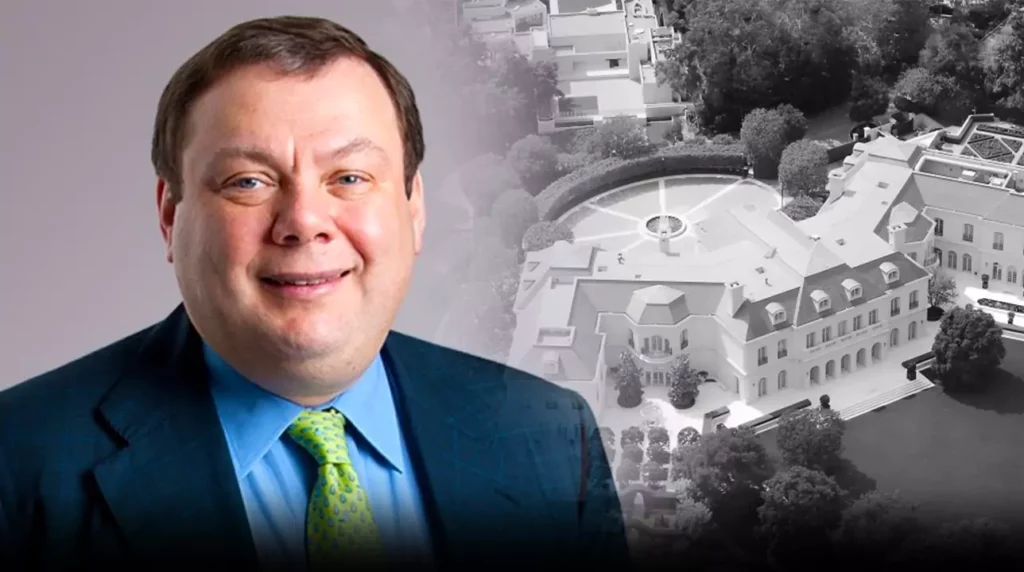
Fridman made enormous sums of money in the energy sector. One of Alfa Group’s most profitable transactions was the 1997 acquisition of 40% of the Tyumen Oil Company (TNK) shares in conjunction with Viktor Vekselberg and Leonid Blavatnik. Five years later, they formed the TNK-BP joint venture by combining their Russian assets with BP of the United Kingdom.
Rising energy prices allowed it to pay out $37 billion in dividends to all shareholders over the next ten years, despite high-profile corporate conflicts.
A new owner of the business took over in 2013. Putin’s longtime friend Igor Sechin, who oversaw the state-owned energy company Rosneft, decided to take over TNK-BP’s operations. Fridman was handsomely compensated. Alfa Group was paid $14 billion for its quarter of a TNK-BP share.
Fridman’s Energy Empire Amidst Conflict
The German energy behemoth RWE sold the Dea mining company to Fridman’s LetterOne in 2014 for a sum of EUR 5.1 billion ($5.6 billion). It moved it to the Wintershall DEA joint venture in 2019, which it formed with BASF, another German company. Fridman’s group became a junior partner in the deal, owning a 33.3% minority stake.
The new group is involved in global mining projects. In addition, Wintershall DEA is a shareholder in or owner of several domestic German and pan-European gas pipelines, including two significant Gazprom projects. First, it owns 15.5% of Nord Stream AG, which runs the Nord Stream 1 pipeline for natural gas. It also provides financial support for the Nord Stream 2 gas pipeline.
Following the start of Russia’s full-scale invasion of Ukraine in March 2022, the country decided to write off the financing of Nord Stream 2 by roughly EUR 1 billion ($1.09 billion). “Gazprom, with the reductions and disruptions of supply, has destroyed the trust in Russia as a reliable supplier of energy for Europe,” CEO Mario Mehren told Reuters in the summer. He said that the business does not intend to back out of cooperative projects to avoid giving “a big gift to the government in Moscow.”
According to later reports from Germany’s Der Spiegel and ZDF broadcasters, the products of one of Gazprom’s joint ventures in Siberia and Wintershall DEA can be used to produce aviation fuel components used by the Russian army in the war against Ukraine.
The billionaire resided in Athlone House, a mid-19th century mansion in northwest London’s Hampstead neighborhood, until autumn 2023. He paid £65 million ($82.1 million) in 2016 for the mansion and two hectares of land.
Based Themselves in London
2019 saw Forbes name Fridman as the richest person living in London, estimating his wealth at $15 billion. Fridman is a citizen of both Israel and Russia, but he has lived in the UK since 2015.
The article stated that just 20 of the 355 billionaires who reside in the UK’s capital are citizens.
“The remaining 335 came from 23 different countries, including Russia, Iceland, and India, to move to London.”
Fridman’s life in the UK has grown more intricate. More than fifty law enforcement officers searched his northwest London mansion in December 2022. They found “digital devices and a significant amount of cash,” and they detained the businessman on suspicion of money laundering. Afterward, Fridman was freed on bond. The National Crime Agency (NCA) only concluded its investigation into the Russian billionaire’s purported sanctions evasion in September 2023.
Fridman had to be economical in the UK ever since. The Office of Financial Sanctions Implementation (OFSI) had prohibited the billionaire from spending more than £30,000 ($37,911) per month on the Athlone House estate. The billionaire’s attorneys sued the OFSI, but their case was dismissed by the High Court of London in October 2023. Furthermore, Fridman was advised by the UK authorities to take public transportation and was not allowed to pay for a personal driver.
Uber fails
In 2016, LetterOne declared its plan to invest $2–3 billion in IT and technology. The first well-known transaction was their investment in Uber. At the time of their $200 million investment, Fridman and his partners valued the company at $62.5 billion.
“We are convinced that Uber’s outstanding management team has the requisite experience and knowledge to turn the company into one of the best technology companies, having worked in retail, banking, telecom, and energy,” Fridman stated at the time.
Nevertheless, there was no profit on the investment. Losses were reported by the startup. Uber’s shares, valued at $45 apiece during its initial public offering (IPO) in early 2019, fell 20% on the first day of trading. Russian media reported, citing the company’s report, that LetterOne sold its stake for just $173 million that year, at a significant loss.
In Lviv, jazz and hype
For a business, reputation is just as vital as profit. On June 3, 2011, the inaugural international Alfa Jazz Fest got underway in Lviv. Ideal match for Fridman, a native of Lviv who started the celebration. The excellent planning, excellent participant selection, and enchanted medieval Lviv setting all contributed to Alfa Jazz’s rapid rise to prominence as Ukraine’s most important cultural occasion. A large number of officials and businesspeople traveled to Lviv to see world-class musicians perform live.
However, because of Russian aggression in Crimea and Donbas, as well as the festival’s primary sponsor’s Russian connections, Lviv residents have begun calling for a boycott of the event since 2014. In an attempt to turn things around, the organizers started inviting Ukrainian performers and took down the bank’s advertisements. Yet, the defenses were ineffective. In 2018, Leopolis Jazz Fest was the new name for the event, even though Alfa Group was still one of the sponsors.
Keep out of the Kremlin
Fridman and his associates were not able to evade claims that they were employed by the Russian government, even in the absence of evidence. BuzzFeed, a news website in the United States, published the infamous “Trump dossier” in 2017, which connected Alfa partners to a Russian effort to tamper with the 2016 US elections. Through the intermediary of Oleg Govorun, a former Alfa Group manager who was employed by the Kremlin at the time, Fridman and Aven are said to have conferred with Putin informally.
Furthermore, it is purported that in the 1990s, Putin obtained financial support from Fridman and Aven via Govorun. In response, the partners filed lawsuits against Fusion GPS, the firm that carried out the investigation, and the publication. The case in the United States was lost, but in the High Court of London, they prevailed and were awarded £18,000 ($22,747) in damages.
This is absurd. both in terms of form and composition. Why is Govorun needed when we have Aven, who was close to Putin in 1992 when Putin was heading the St. Petersburg City Hall Committee on Foreign Relations and Aven was the Minister of Foreign Economic Relations? And I haven’t met Putin,” Fridman said in a 2017 interview with Forbes Russia.
A sanctioned Target
Following the start of Russia’s full-scale invasion of Ukraine, Fridman, Aven, and Khan found themselves on the lists of individuals subject to sanctions maintained by the European Union and the United Kingdom, which resulted in the freezing of their accounts. Late in 2022, partners in the Alfa Group faced sanctions from Ukraine.
Fridman resigned from Alfa-Bank Ukraine’s management, gave the Georgian government 7.7% of the company’s shares in the mineral water production company, and gave up all of his positions within the companies he owns.
Khan chose to go back to Russia. Before Hamas terrorists attacked Israel in early October, Fridman had relocated there; he was then compelled to flee to Moscow. The billionaire wants to go back to the United Kingdom, but the sanctions imposed on him have made this unfeasible. Fridman is a citizen of Russia and “may return, live here, or leave like any citizen,” according to Russian presidential spokesman Dmitry Peskov. The businessman expressed his desire to go back to Israel.
Alfa is no longer present.
The owners of Alfa Group appeared to be so strong as recently as last year that they were forced to renounce talks to acquire Monobank, one of the biggest online banks in Ukraine. Nonetheless, Forbes Ukraine revealed that they came close to selling their bank this year. Any deal at this point is unlikely.
The bank’s shares were first seized by the courts, which prevented the sale. Secondly, the agreement cannot be finalized without the approval of the National Bank of Ukraine, which is currently anticipating a different set of circumstances and is getting ready to nationalize the organization.
Fridman and his allies are pursuing a strategy of severing ties with Moscow in the interim.
“I think the war against Ukraine is a tragedy, and I condemn it.” The billionaire expressed his strong belief in the prosperous future of his native Ukraine, where he was born and raised, to the Interfax-Ukraine news agency.
We are presenting Ukraine’s voice to the global community. Become a Patron or make a one-time donation to help us!




